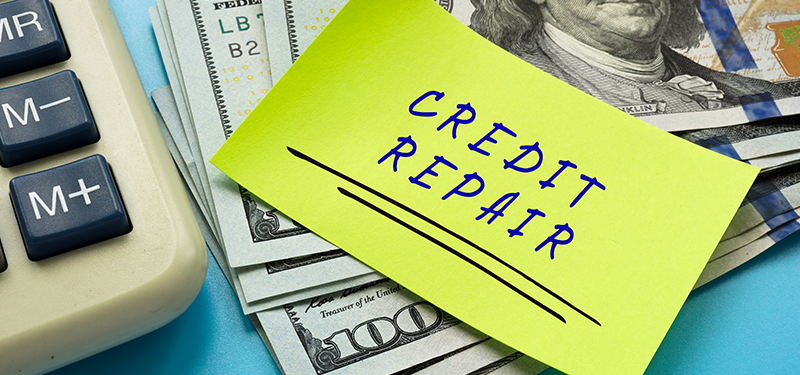Credit Repair 101: The Right Way to Get Collections Removed from Your Credit
Having collections on your credit report can significantly damage your credit score and limit your financial opportunities. Whether it’s an overdue bill or an error, getting collections removed from credit can be a game-changer for your financial health. If you’re wondering how to tackle collections on your credit report, you’re in the right place. This comprehensive guide will walk you through the best practices, tips, and strategies for removing collections from your credit the right way.
Why Collections Matter on Your Credit Report
Collections are a red flag for lenders, signaling that you’ve had trouble managing debt in the past. This can make it harder to qualify for loans, credit cards, or even secure housing. When a debt is sent to collections, it negatively affects your credit score and stays on your report for up to seven years.
However, removing collections from your credit report isn’t impossible. In fact, with the right strategies, you can improve your credit score and open the door to more financial opportunities.
Credit Repair 101: Understanding the Process of Removing Collections from Credit
Before jumping into the specifics of how to get collections removed from credit, it’s important to understand the process. Credit repair is a series of steps aimed at improving your credit score by addressing errors or negative marks like collections. The goal is to ensure that your credit report accurately reflects your financial behavior, giving you the chance to improve your score over time.
There are several methods to get collections removed, and choosing the right strategy will depend on the nature of the collection and your financial situation.
How to Successfully Get Collections Removed from Credit: Credit Repair 101
Here’s a step-by-step guide to help you successfully get collections removed from credit:
1. Review Your Credit Report
The first step is to get a copy of your credit report from the three major credit bureaus: Experian, TransUnion, and Equifax. You can request your free credit reports annually at AnnualCreditReport.com. Make sure to review them for any collections that don’t belong to you or that are inaccurate.
2. Dispute Inaccurate Collections
If you find an error, such as a collection listed under your name that you’ve already paid or doesn’t belong to you, dispute it with the credit bureaus. The bureaus are required to investigate and remove any errors they find within 30 days.
Use the following steps when disputing:
- Identify the mistake.
- Provide documentation that supports your case (e.g., bank statements, letters from creditors).
- File a dispute with each credit bureau that is reporting the incorrect information.
3. Negotiate Pay-for-Delete Agreements
Sometimes, a collection agency will agree to remove the collection from your report if you pay off the debt. This is called a “pay-for-delete” agreement. While not all collection agencies will agree to this, it’s worth asking.
Here’s how to approach the process:
- Contact the collection agency directly.
- Negotiate a settlement or pay the full amount in exchange for having the collection removed.
- Ensure that the agreement is in writing before making any payments.
4. Request Debt Validation
If you’re unsure whether the collection is valid, you have the right to request debt validation from the collection agency. They are required to provide proof of the debt. If they fail to validate the debt, they must remove it from your credit report.
5. Seek Professional Credit Repair Help
If you’re feeling overwhelmed or don’t have the time to dispute collections on your own, consider working with a professional credit repair service like Cents Savvy. These experts can help you navigate the complexities of the credit repair process, from disputing inaccurate collections to negotiating with creditors.
The Ultimate Credit Repair Guide: Getting Collections Removed the Right Way
Successfully getting collections removed from credit requires persistence, knowledge, and sometimes expert guidance. Here’s a quick recap of the best practices:
- Check for errors: Regularly review your credit report to identify any inaccuracies.
- Dispute inaccuracies: File disputes with the credit bureaus to have errors corrected.
- Negotiate: Contact collection agencies to negotiate pay-for-delete agreements.
- Validate debts: Always request validation if you’re unsure about a collection.
- Consider professional help: Credit repair services can save you time and effort.
By following these steps and being proactive in addressing collections, you can significantly improve your credit score over time.
Credit Repair 101: Tips and Strategies for Getting Collections Removed from Credit
Here are some additional strategies and tips for removing collections from your credit report:
1. Keep Communication in Writing
When dealing with collection agencies, always communicate in writing. This ensures that you have a record of all correspondence, which can be useful if you need to dispute any actions later.
2. Don’t Ignore the Collections
Avoid ignoring collections, as this can worsen your credit. Instead, take action as soon as you notice them on your credit report. The longer you wait, the more difficult it may be to remove them.
3. Don’t Settle Without a Plan
If you negotiate a settlement with a collection agency, be clear about your agreement. Ensure they’ll remove the collection from your credit report once it’s paid off before making any payments.
Call to Action: Get Help Removing Collections from Your Credit
Removing collections from your credit report can be challenging, but with the right knowledge and strategies, it’s possible to boost your credit score and improve your financial future. If you need expert help, Cents Savvy is here to guide you every step of the way.
Take the first step today:
- Learn more about our credit repair services
- Schedule a free consultation to see how we can help you get collections removed from your credit report.
- Start your journey to a better credit score now!
Ready to Clean Up Your Credit?
Contact Cents Savvy today and let our experts guide you toward financial freedom.

